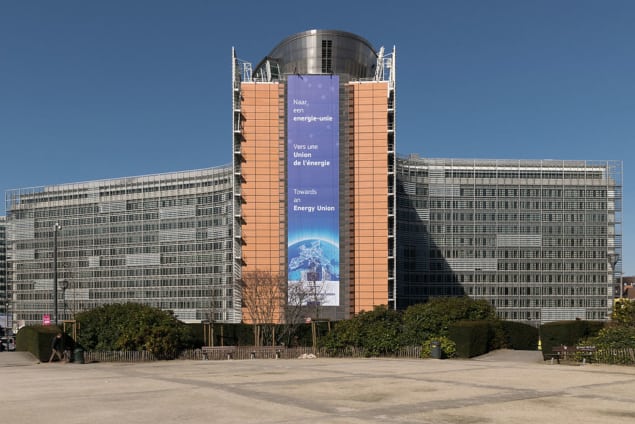
More than 9000 scientists, including Andre Geim, Carlo Rubbia and eight other Nobel-prize-winning physicists, have signed a letter calling on the European Commission (EC) to reinstate a dedicated commissioner for education and research. The letter claims that that an out-and-out role for education and research is necessary to create a sound basis for innovation in Europe.
News of the apparent sidelining of science emerged when Ursula von der Leyen, the EC’s president-elect, presented her team and the new structure of the next European Commission on 10 September. It included her candidates for the new set of 18 commissioners, but the plan no longer included a commissioner that explicitly represents education and research.
These areas are instead expected to be covered by the commissioner for innovation and youth – the nominee for which is Mariya Gabriel, who is the current commissioner for digital economy and society. In the new set-up, the innovation and youth role appears to be a merger between the current directorate for research, science and innovation with that for education, culture, youth and sport.
This rebranding does not sound like a big deal. But eventually…out of sight, out of mind, people start forgetting that there could be no progress and innovation without science and research
Andre Geim
According to the EC, Gabriel’s focus will be on creating “new perspectives for the young generation”. In her letter offering Gabriel the role, von der Leyen states that education and research will be part of the innovation and youth mission, which includes ensuring agreement and implementation of the future Horizon Europe programme.
Long-term benefits
Scientists have reacted with dismay at the move, with eight prominent physicists, including Alexander Rothkopf from the University of Stavanger in Norway, penned an open letter calling on the commission to reverse the decision. Addressed to David-Maria Sassoli, president of the European parliament — as well as von der Leyen and the current EC president Jean-Claude Juncker – the letter warns that by demoting research and education into innovation and youth, the commission is emphasizing “economic exploitability” and giving the impression that education is only for the young. They call on the European Parliament to request that the name is changed to Commissioner for Education, Research, Innovation and Youth before they confirm the nominees for the new commissioners.
“We created the open letter since the promise of a high standard of living for the citizens of Europe in a globalized world can only be upheld if we explicitly acknowledge the important role played by education and research,” Rothkopf told Physics World. “Both are the foundation for innovation, from which economic prosperity arises in the 21st century. By removing the terms from the title of commissioner Gabriel, the role of education and research is not adequately reflected within the commission.” Nobel prize-winners warn that Horizon Europe programme will put photonics sector at risk
The letter has so far been signed by over 9100 scientists including 17 Nobel laureates as well as the leaders of scientific associations and societies across Europe. Teresa Montaruli, an astrophysicist from the University of Geneva, who is chair of the Astroparticle Physics European Consortium, told Physics World that she signed the petition because of the importance of research and education. She says that although research and education are linked to innovation and technological development, they also lead to breakthroughs that “may not be attractive to industry or produce technological advancement”, but are beneficial in the long term.
“This rebranding does not sound like a big deal,” the Nobel Prize-winning physicist Andre Geim, from the University of Manchester told Physics World. “But eventually…out of sight, out of mind, people start forgetting that there could be no progress and innovation without science and research.”
Yet Gian Giudice, head of theory at the CERN particle-physics lab near Geneva who has also signed the letter, says that it is action and not names that matter. “Europe is strongly committed to fundamental research and I trust that Gabriel will be a great advocate for science as a vehicle of intellectual, social and economic progress,” he says. “However, including research in her title will give a clear signal of Europe’s priorities.”



